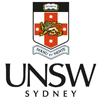Bachelor of Engineering (Hons) (Biomedical Engineering)
UNSW
CRICOS provider number: 00098G TEQSA provider ID: PRV12055
Courses included
This course has been cancelled
About
The Bachelor of Engineering (Honours) in Biomedical Engineering is a program that incorporates various engineering skills to create solutions to improve people’s health and wellbeing. Biomedical Engineering is a field in which engineering principles meet biological and medical sciences to innovate and enhance healthcare solutions, create more effective patient care and make a positive impact in the health space.
In this specialisation, students will design and develop medical devices and health technologies, whilst exploring cutting-edge healthcare solutions like imaging systems, prosthetics, and biocompatible materials and diagnostic instruments. They will be equipped with the skills to apply the latest advances in robotics, computing and nanotechnology to medicine, and will work closely with healthcare providers whilst gaining a solid foundation in core engineering principles.
Double degrees: Biomedical Engineering can be combined with 425560 Bachelor of Fine Arts, 425850 Bachelor of Arts, 425850 Bachelor of Science, 425850 Bachelor of Science (Computer Science), 425900 Bachelor of Commerce, 426000 Bachelor of Laws, 429330 Bachelor of Science (Advanced Mathematics) (Hons), 429360 Bachelor of Advanced Science (Hons) or 425401 Bachelor of Engineering Science.
ATAR Profile: Some UNSW offers were issued based on the UNSW Gateway Early Conditional Offer Scheme with a lower ATAR entry requirement. Refer to the Admissions Information for a complete ATAR profile by degree.
Areas of study
Biocompatibility, biomedical data analysis, biomaterials, biosensors, cell and materials technologies, computing for engineers, electrical circuit fundamentals, engineering design, mechanics of the human body and physiology.
Career opportunities
Be prepared to solve healthcare challenges to improve the quality of human life. A flexible skill set will ensure students are well equipped to work across engineering, health or technology industries in hospitals, government bodies, industry or academic areas. Some career opportunities include biomedical engineering consultant, clinical engineer, healthcare data engineer, or rehabilitation engineer.
Professional recognition
Students can apply for membership of the relevant professional engineering or science institutions within Australia and affiliated overseas bodies. Accreditation by Engineers Australia will be sought for this degree. International recognition offers graduates the opportunity to travel and work overseas.
Practical experience
Students complete at least 60 working days of approved industrial experience as part of all accredited Engineering programs.
Women in Engineering program: The Women in Engineering community at UNSW is a valuable support network that will help empower you to grow personally and professionally. With bespoke mentoring and development opportunities and our program of industry events, we aim to ensure you emerge from UNSW as a highly employable and qualified professional.
The ChallENG Program: Take part in interactive learning through the ChallENG program. The ChallENG program connects students, academics and companies to exciting, real-world projects and learning-based initiatives. The program will prepare you for your future career by helping develop technical and design skills and expanding your professional expertise.
Honours
Honours Class 1 or 2 will be awarded on the basis of superior performance throughout the course.
Fees and charges
Refer to UNSW current fee information.
Admission criteria
Applicants with recent secondary education
Assumed knowledge: Mathematics Extension 1, Physics.
Portfolio Entry: Early Conditional Offer Scheme: This degree is eligible for the Portfolio Entry Early Conditional Offer Scheme. You can submit a portfolio to demonstrate your passion for your chosen degree and receive an early conditional offer with an adjusted ATAR entry requirement. Students are required to submit a video and personal statement conveying their motivation and passion towards studying Engineering, Computer Science or Food Science.
Other applicants
Refer to UNSW general admission criteria.
Student profile
Visit the UNSW website.
Further information
View all details of this course on the UNSW website.
The academic content of all programs is subject to routine review.
ATAR profile
ATAR-based offers only (semester 1, 2024)
Use all ATAR profile data as a guide only; it provides a broad overview of the ATARs and selection ranks of previous Year 12 students admitted into that course. ATARs and selection ranks required for entry in 2025 may be different. If you are unsure about including a course among your preferences, contact the relevant institution.
- This ATAR profile table is in line with Commonwealth Government transparency requirements. It is based on offers to recent school leavers (ie completed Year 12 in the last 2 years) who were selected solely or partly on their ATAR. Note that some institutions further differentiate this information on their websites.
- The ATAR values exclude any adjustment factors.
- The selection ranks include the ATAR and any adjustment factors.
Abbreviations
– = data is not available.<5 = less than 5 ATAR-based offers were made.
N/A = no offers were made on the basis of ATAR.
NC = new course
NP = Not provided by institution
NR = No reportable profile
NS = No Semester 1 offers
NN = Unavailable (other)
NO = Entry on other criteria
Student profile
Course updates
Courses are added and cancelled throughout the admissions year and course details are subject to change. Check the UAC course search regularly.
Double degree options
Double degree options are available in a number of UNSW courses.
Honours at UNSW
Studying honours offers a chance to develop your research and professional skills guided by staff who are passionate about research and the development of new researchers. Honours is an integral component of many UNSW courses or may be offered as an additional year of study to meritorious students.
